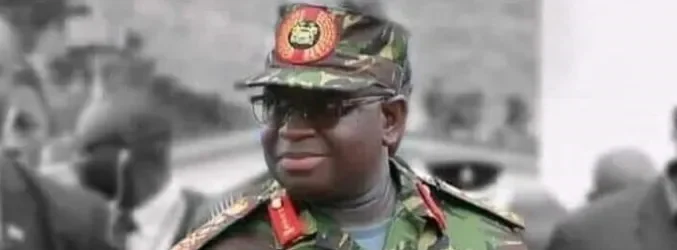By Hassan Osman Kargbo
Journalist and social commentator Melvin Tejan Mansaray has sharply criticized President Julius Maada Bio’s handling of the ongoing drug crisis in Sierra Leone, arguing that the government has failed to demonstrate a coherent and effective response to the growing threat.
Speaking in reaction to President Bio’s recent address at the United Nations General Assembly (UNGA), where the President emphasized his administration’s commitment to combating narcotics, Mansaray said the situation on the ground paints a different picture. He claimed that despite government assurances, the country is slipping deeper into a state of crisis driven by the widespread use and trafficking of dangerous drugs, especially “kush,” a synthetic substance ravaging communities across the nation.
According to Mansaray, the government’s strategies have been reactive rather than preventive, allowing the drug menace to spread rapidly among the youth population. “The truth is, the fight against drugs has failed. What we are witnessing is a public health and security emergency that has exposed major weaknesses in our governance system,” he said.
Mansaray noted that while President Bio’s speech at the UNGA highlighted progress in tackling drug-related issues, the situation within Sierra Leone tells another story. He pointed to the increasing number of addicts on the streets, reports of drug-related crimes, and the lack of proper rehabilitation centers as evidence of the government’s inability to contain the crisis.
“Our communities are under siege. Every day, young people are dying, families are breaking apart, and the social fabric of our nation is weakening. This is not the mark of success—it is the mark of systemic failure,” Mansaray emphasized.
He warned that if urgent steps are not taken, Sierra Leone could soon become a “narcotic state,” where the drug trade infiltrates institutions of governance and undermines the country’s democratic stability. “When a nation cannot control the flow of drugs within its borders, the consequences are far-reaching—it affects law enforcement, public trust, and the very essence of state authority,” he warned.
Mansaray urged the government to adopt a more holistic approach to the problem, one that combines law enforcement with rehabilitation, education, and socioeconomic empowerment. He argued that the over-reliance on police raids and arrests has done little to address the root causes of addiction, such as unemployment, poverty, and hopelessness among the youth.
“The drug crisis cannot be fought with press releases or political speeches. It requires a national strategy that is evidence-based, inclusive, and sustainable,” he said.
He also called on civil society, faith-based groups, and the private sector to play more active roles in supporting community-level interventions, including awareness campaigns and counseling programs.
Mansaray concluded by urging the President to demonstrate stronger leadership on the issue. “President Bio still has the chance to change the narrative. The government must take bold, practical steps to save the next generation from being lost to drugs,” he said.
His remarks have sparked renewed public debate on the effectiveness of the government’s anti-drug initiatives, with many citizens expressing frustration over the growing visibility of drug abuse across Sierra Leone’s towns and cities.










